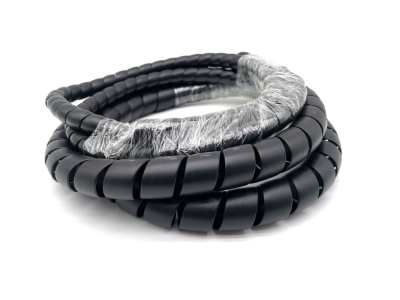Comprehensive Guide to Fixing Automotive Air Conditioning Hoses for Optimal Performance and Durability
Auto Air Conditioning Hose Repair A Comprehensive Guide
The air conditioning (AC) system in your vehicle is essential for ensuring a comfortable driving experience, especially during the sweltering summer months. One critical component of the AC system is the air conditioning hose. These hoses carry refrigerant between various parts of the system, allowing for the proper cooling of your vehicle's interior. Over time, these hoses can develop leaks or become damaged, leading to a decline in AC performance. Understanding the basics of auto air conditioning hose repair can save you both time and money.
Understanding the AC System
The automotive air conditioning system is designed to transfer heat from the inside of the vehicle to the outside, thus cooling the cabin air. The system consists of several components, including the compressor, condenser, evaporator, and, of course, the hoses. The hoses are responsible for transporting refrigerant between these components. Typically made of durable rubber or synthetic materials, these hoses can wear out due to age, exposure to extreme temperatures, or physical damage.
Signs of Hose Damage
Detecting issues with your AC hoses is crucial for maintaining an efficient air conditioning system. Common signs of hose damage include
1. Visible Cracks or Leaks Inspect the hoses for any obvious cracks, fraying, or signs of refrigerant leakage. A wet or oily residue around the hoses may indicate a leak.
3. Unusual Sounds Hissing or whistling noises coming from the AC system may suggest a refrigerant leak through a damaged hose.
4. High Pressure Readings If you’re using a manifold gauge and see unusually high pressure in the system, it can be indicative of a blockage, often due to a failing hose.
auto air conditioning hose repair

Repairing Air Conditioning Hoses
When it comes to repairing AC hoses, you have a couple of options—temporary fixes or permanent repairs. Here’s a brief overview of both methods
1. Temporary Fixes In situations where immediate repair isn’t feasible, a temporary fix can be applied using duct tape or specialized hose tape. This solution is not recommended for long-term use, but it may help you get to a repair shop.
2. Permanent Repairs The best approach is to replace the damaged hose entirely. Here’s how to do it
- Gather Tools and Materials You'll need an AC hose replacement, a set of wrenches, refrigerant recovery equipment, and possibly, hose clamps. - Recover Refrigerant Always prioritize safety and proper handling of refrigerants. Use recovery equipment to evacuate the refrigerant from the system. This step is crucial to prevent environmental harm and comply with regulations.
- Disconnect and Remove the Damaged Hose Use wrenches to carefully disconnect the old hose from the system. Be cautious, as residual refrigerant may still be present.
- Install the New Hose Position the new hose, making sure gaskets are securely in place. Reattach it to the system and tighten the connections.
- Recharge the System Once the new hose is installed, the system needs to be recharged with refrigerant. This task is best done by a professional unless you have the necessary equipment and experience.
Conclusion
Properly functioning AC hoses are vital for the efficient performance of your vehicle's air conditioning system. Regular inspections and prompt repairs can help you avoid more extensive damage and costly repairs down the line. While simple fixes may suffice in the short term, replacing damaged hoses is the most effective method to ensure your AC operates smoothly. If you're unsure about any part of the repair process, consulting a trained mechanic is always a wise choice. With proper care and maintenance, you can enjoy a cool and comfortable ride, no matter the weather outside.
-
Ultimate Spiral Protection for Hoses & CablesNewsJun.26,2025
-
The Ultimate Quick-Connect Solutions for Every NeedNewsJun.26,2025
-
SAE J1401 Brake Hose: Reliable Choice for Safe BrakingNewsJun.26,2025
-
Reliable J2064 A/C Hoses for Real-World Cooling NeedsNewsJun.26,2025
-
Heavy-Duty Sewer Jetting Hoses Built to LastNewsJun.26,2025
-
Fix Power Steering Tube Leaks Fast – Durable & Affordable SolutionNewsJun.26,2025

